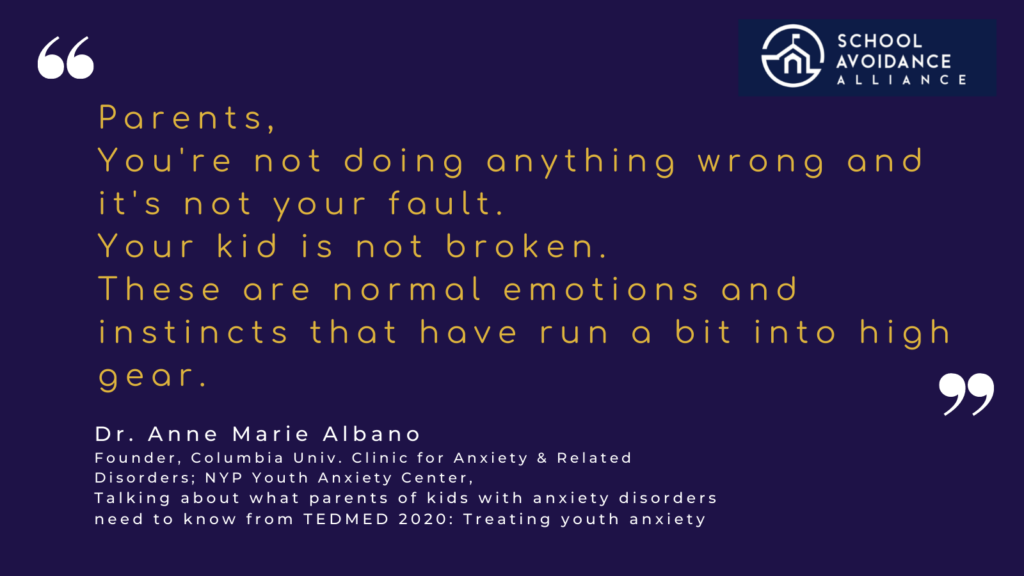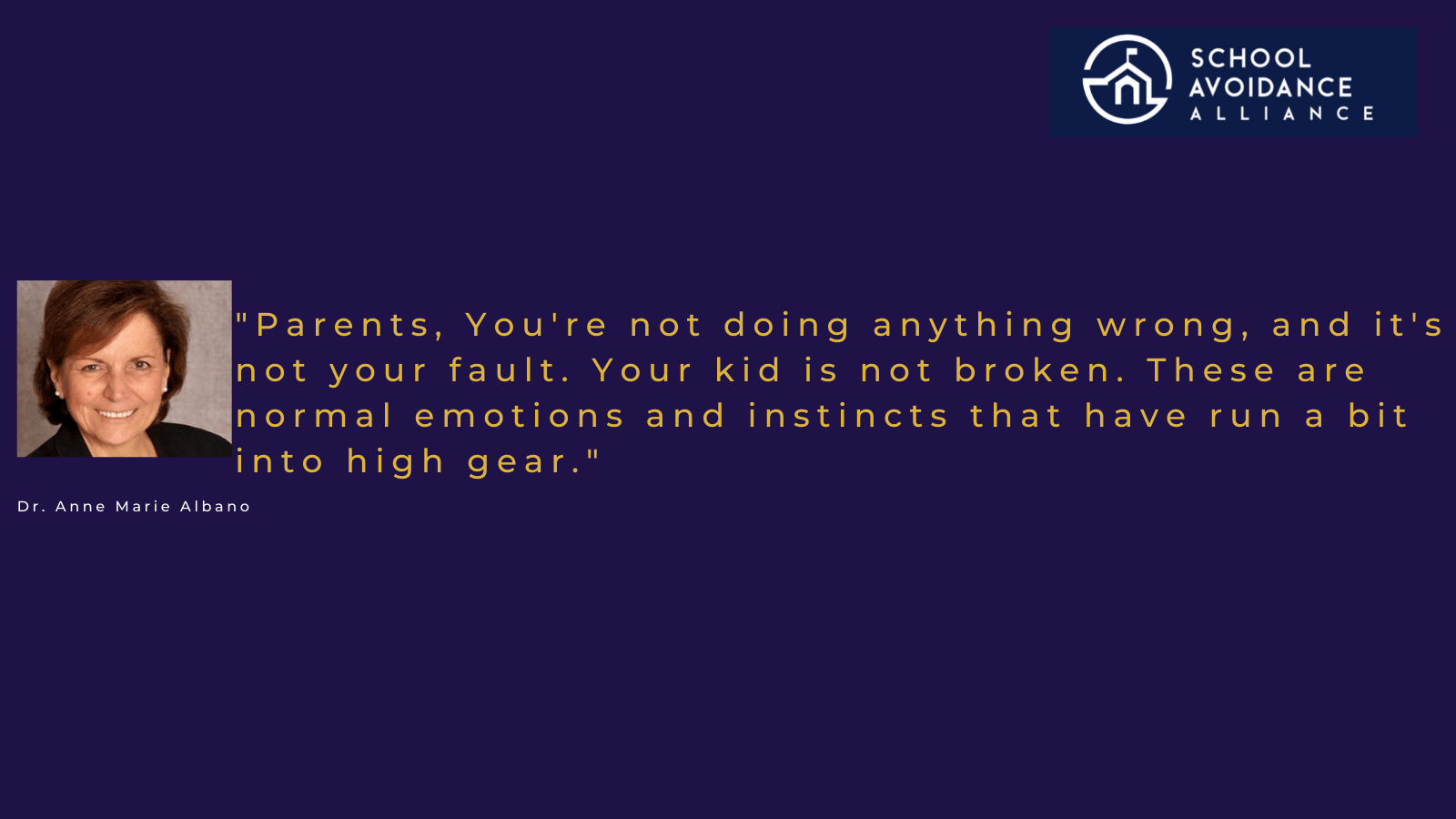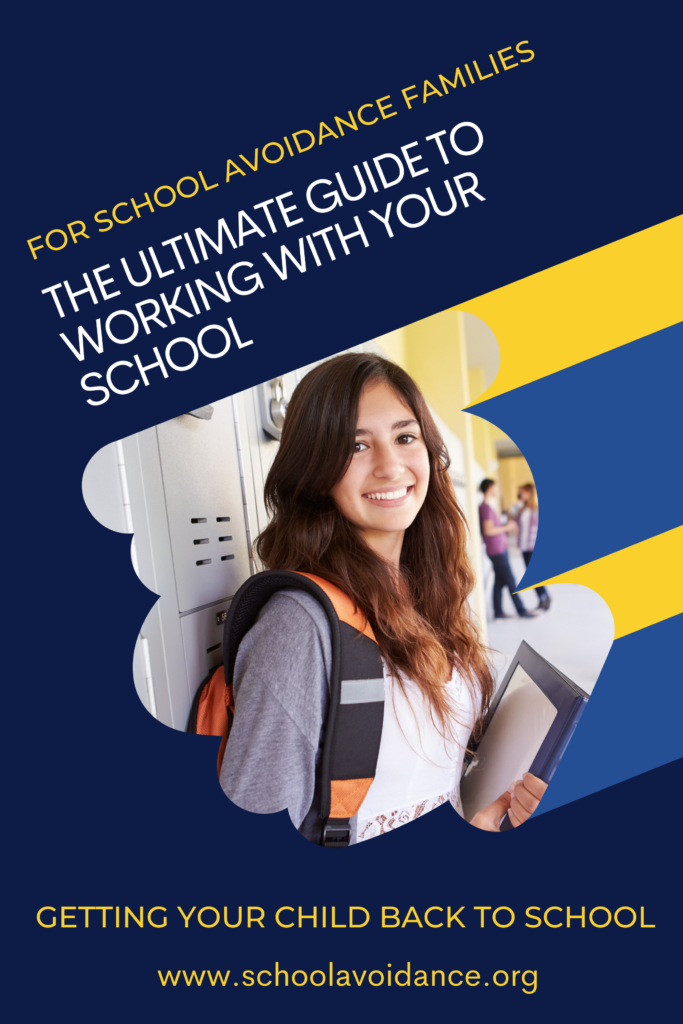In this Psychcast interview from 2020, Dr. Albano discusses treating kids with anxiety disorders.
MDedge is for physicians, and health care professionals providing medical news trusted and credible sources. Dr. Lorenzo Norris, MD, is the host of the MDedge Psychcast, editor in chief of MDedge Psychiatry, and assistant professor of psychiatry and behavioral sciences at George Washington University,
Dr. Albano’s interview starts around the 7-minute mark and ends at 30 minutes.
School avoidance families will find value as Dr. Albano addresses escape as avoidance and how natural parent instincts lead to accommodations that enable our kid’s avoidance. Her guidance and insight are helpful for us to understand so we can work on correcting this pattern.
The doctor highlights the value of exposure and comments on SSRI Antidepressants.
Being a former member of the school avoidance parent club, I see how this truth can sting for a couple of reasons.
1. In theory, this makes total sense, but in reality, it feels callously tough to counter when you have a screaming, crying kid hiding under their covers.
2. It can make you feel like a lousy parent hearing what you should have done.
But, Dr. Albano says that not giving into accommodations goes against our parental instincts. It is human nature to soothe our kids and feel pained watching them feel pain. So, as a parent, you are not a fault!
She reiterates this around the 27-minute mark when Dr. Norris asks Dr. Albano what advice she would give to mental health providers helping families with their kid’s anxiety disorders.
‘Parents, You’re not doing anything wrong, and it’s not your fault. Your kid is not broken. These are normal emotions and instincts that have run a bit into high gear.‘







